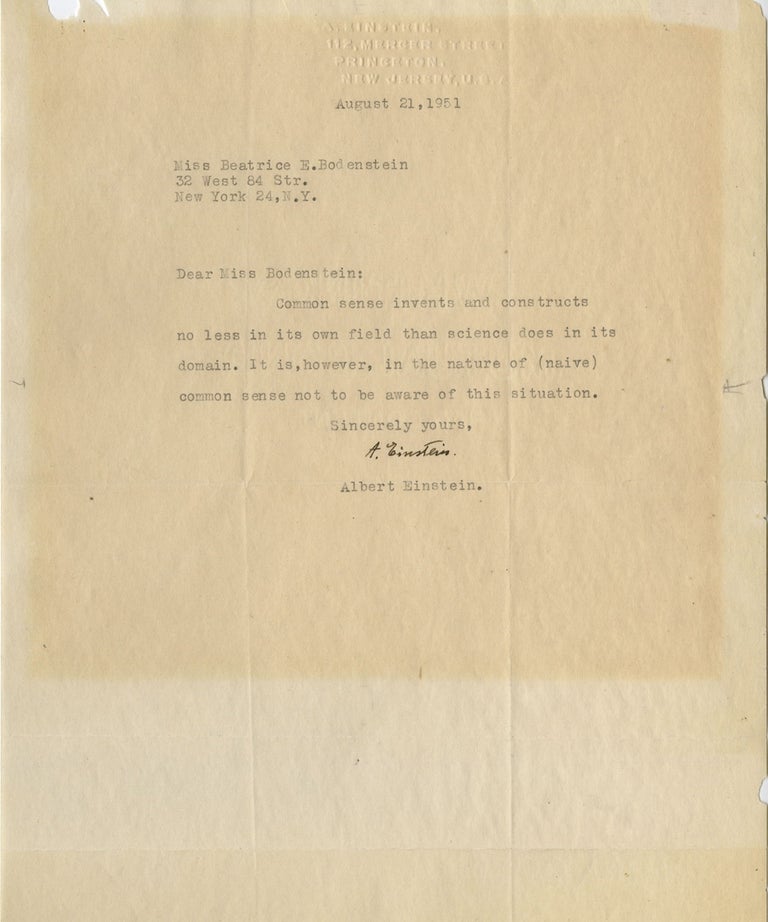Typed Letter Signed
"Common sense invents and constructs no less in its own field than science does in its domain...”
EINSTEIN FAMOUSLY CRITICIZES "NAIVE COMMON SENSE" AS AN OBSTACLE TO SCIENTIFIC UNDERSTANDING.
Einstein's relativity theories challenged many principles of physics that had been accepted for centuries, and specifically supplanted many of the assumptions of Newtonian physics. It required a fundamental shift in the way people viewed the world around them. Not everybody was ready to accept theories that contradicted everyday lived experience and Einstein had his detractors and opponents, people, for example, who claimed that relativity could not be true because it violated their obvious perceptions.
At the heart, then, of the opposition to Einstein was a principle called "naive common sense,” i.e. that our rational mind sees things and assumes they are what they seem to be. Relatively theory, however, challenged that.
In fact, the initial reaction of this "naive common sense" is to assume that relativity must be incorrect. Einstein considered this type of common sense to be a collection of prejudices. That he rejected this form of "common sense” as well as classical principles of motion, goes to the heart of his definitions of space and time, and his rejection of absolute time and absolute space. The pre-Einstein definition of "absolute rest," for instance, requires a corresponding definition of absolute space in relation to it, and he rejects this, demonstrating empirically that such things are measured in relation to other objects, as explained by relativity. He does not reject entirely the notion of common sense – he simply states that it is not the fixed, reliable perspective through which all must be true.
This distinction cuts at the heart of what made relativity so revolutionary. It draws a line in the sand between the work of Einstein and his predecessors, and defines how we view space and time today. It represents a fundamental change from the worldview of Newtonian physics.
In 1951, Einstein wrote a woman a letter in which he challenged how we view things in our every day perceptions, making the point that common sense cannot be taken at face value. The quotation in the letter, which has since become famous, is among Einstein's great and simple statements, applying both to every day life and, for him, specifically to relativity.
The letter, address to Miss Beatrice E. Bodenstein and dated August 21, 1951, reads in full:
"Dear Miss Bodenstein: Common sense invents and constructs no less in its own field than science does in its domain. It is, however, in the nature of (naive) common sense not to be aware of this situation.
Sincerely yours,
[Signed] A. Einstein.
Albert Einstein
One page (one side) on Einstein’s Mercer Street letterhead. August 21, 1951. Toning to letter (including text), usual folds.
A BEAUTIFUL CONCISE STATEMENT EXPRESSING THE ESSENCE OF EINSTEIN’S APPROACH TO SCIENCE.
Check Availability:
P: 212.326.8907
E: michael@manhattanrarebooks.com

